The 10 fastest-charging electric cars on sale in 2025
Think electric cars are slow to charge? Think again. These EVs fill their batteries in under 20 minutes.
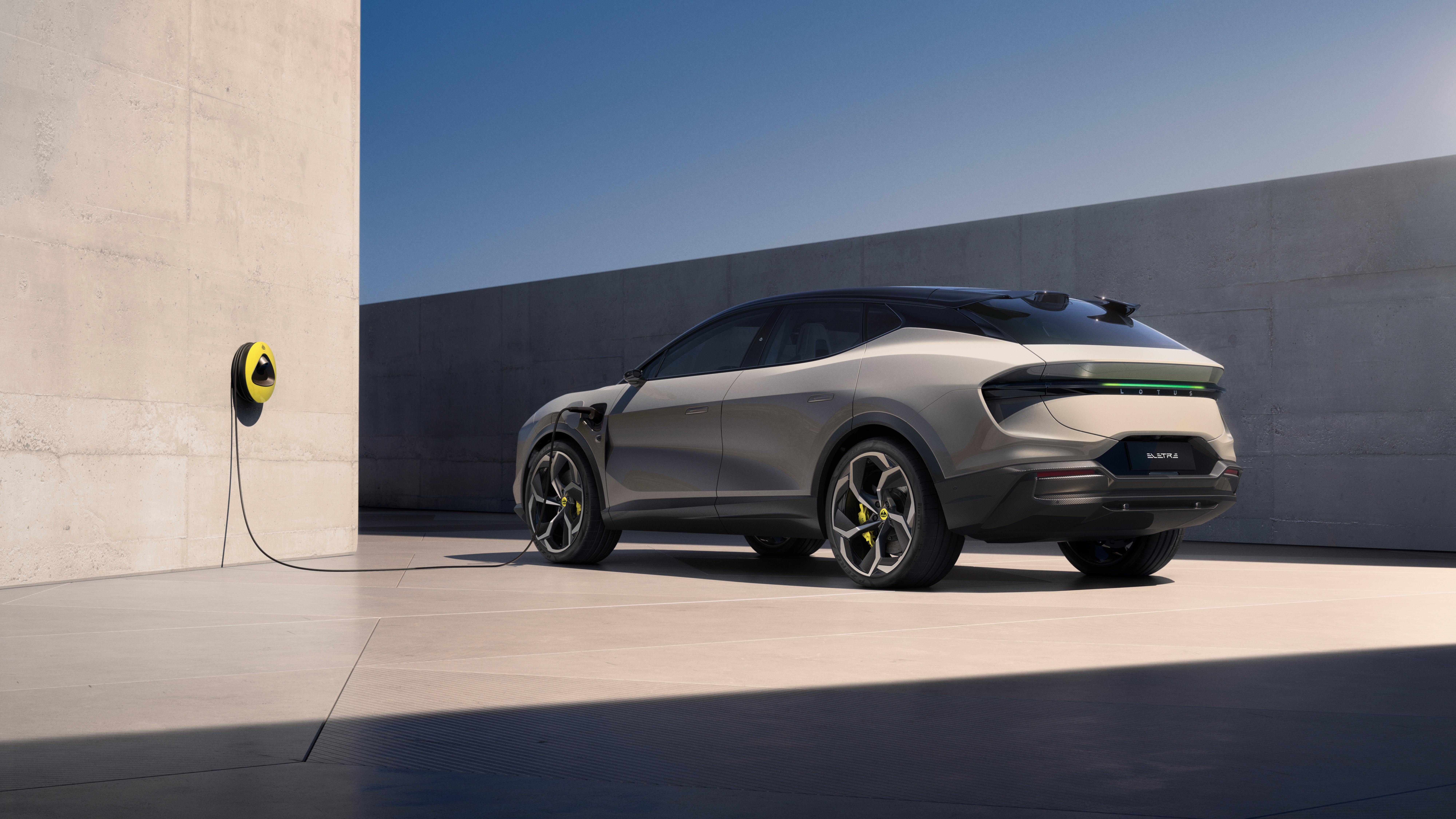
The Independent's Electric Vehicles Channel is sponsored by E.ON Next.
It’s 2025 and, while the electric car market is maturing more quickly than ever before, it’s still true that some EVs charge much more quickly than others. You’re unlikely to see much difference when filling the battery with a wallbox charger at home, since these use AC electricity and generally work at up to 9kW or 11 kW (kilowatts). But the power, and therefore speed, of DC public chargers can vary significantly – and so too does the maximum speed your EV is capable of charging at.
Almost every electric car sold today can charge at a rate of at least 50 kW, while many operate at 100 kW or more, and some are even capable of over 300 kW. Plug into an equally powerful charger (the most powerful public chargers currently work at up to about 350 kW), and your battery will fill up far more quickly than when using a less powerful charger.
But which is the fastest-charging electric car money can buy? Real-world charging performance can vary, depending on how much charge the battery already has, as well as the ambient temperature – charging can be slower in the winter – and the status of the charger itself. Sometimes a charger will work less quickly when that particular station is already providing power to several other EVs. And remember, charging at home is slower but also significantly cheaper than any public charger.
How fast an EV charges should be a simple question, yet providing a definitive answer isn’t as simple as you’d think. However, by using the maximum charge rate provided by car manufacturers, we can assemble a list of the quickest-charging EV on sale today – and here they are:
Fastest-charging electric cars in 2025
1. Lotus Eletre: £89,500, Lotuscars.com
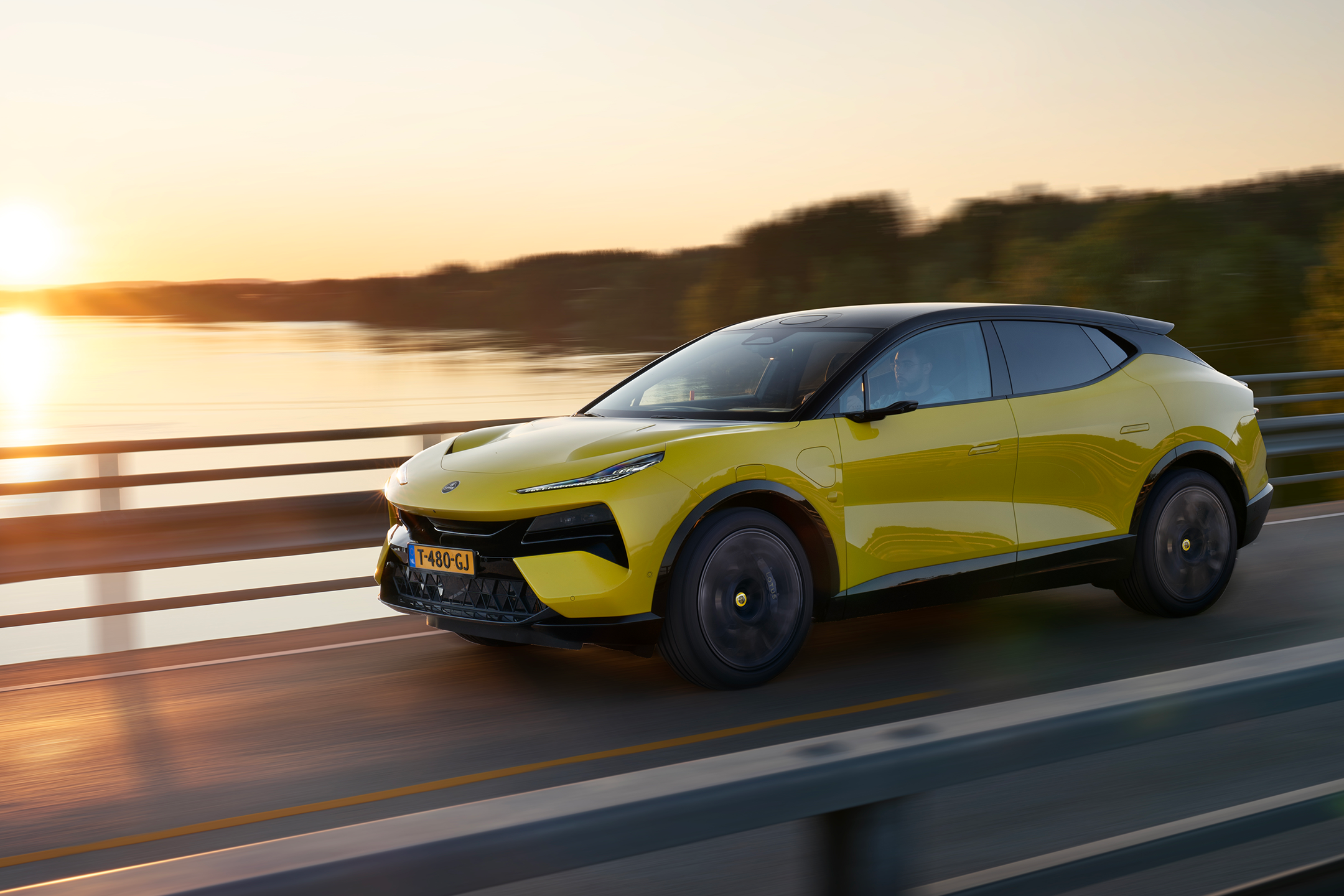
Independent rating: 9/10
- Maximum charge rate: 350 kW
- Battery size: 112 kWh
- Electrical architecture: 800 volts
- Charge time: 10 to 80 per cent in 14 minutes
- Maximum claimed range: 373 miles
The current king of EV charging is the Lotus Eletre, which can fill its battery at up to 350 kW, making full use of the most powerful public chargers available anywhere in the UK. In fact, Lotus said in June 2024 that the Eletre can go even quicker, reaching 402 kW when plugged into its own 450 kW charger.
Even using a public 350 kW charger, the Eletre can fill from 10 to 80 per cent in just 20 minutes, or gain up to 74 miles of range in as little as five minutes. Lotus says that, when using a 400 kW charger, the Eletre could cut that 10-80 per cent time down to just 14 minutes.
2. Audi e-tron GT: £108,680, Audi.co.uk
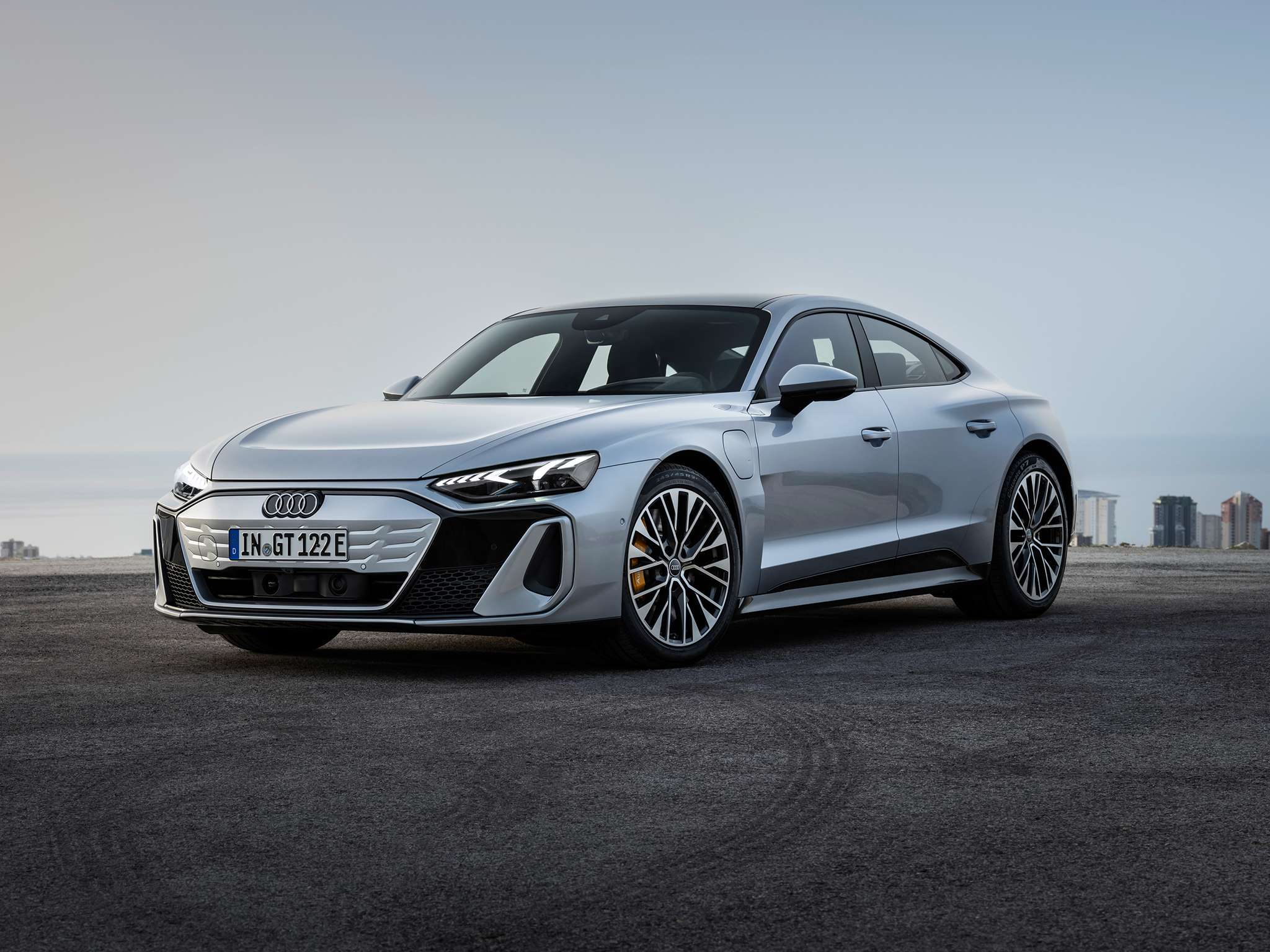
Independent rating: 8/10
- Maximum charge rate: 320 kW
- Battery size: 105 kWh
- Electrical architecture: 800 volts
- Charge time: 10 to 80 per cent in 18 minutes
- Maximum claimed range: 378 miles
Both Audi and Porsche produce cars with incredibly fast charging capabilities, in the form of the closely-related Audi e-tron GT and Porsche Taycan. As part of a recent facelift, the Audi e-tron GT now charges at up to 320 kW (up from 270 kW for the previous generation), and can fill its battery from 10 to 80 per cent in as little as 18 minutes.
It’s worth remembering that car manufacturers tend to use 80 per cent as the cutoff for their rapid charge times, as batteries fill far more slowly after that point. It is also considered good practice to avoid frequently rapid-charging a car battery beyond 80 per cent, and to only charge fully using an AC charger at home, in a bid to sustain the lifetime of the battery.
3. Porsche Taycan: £86,500, Porsche.com
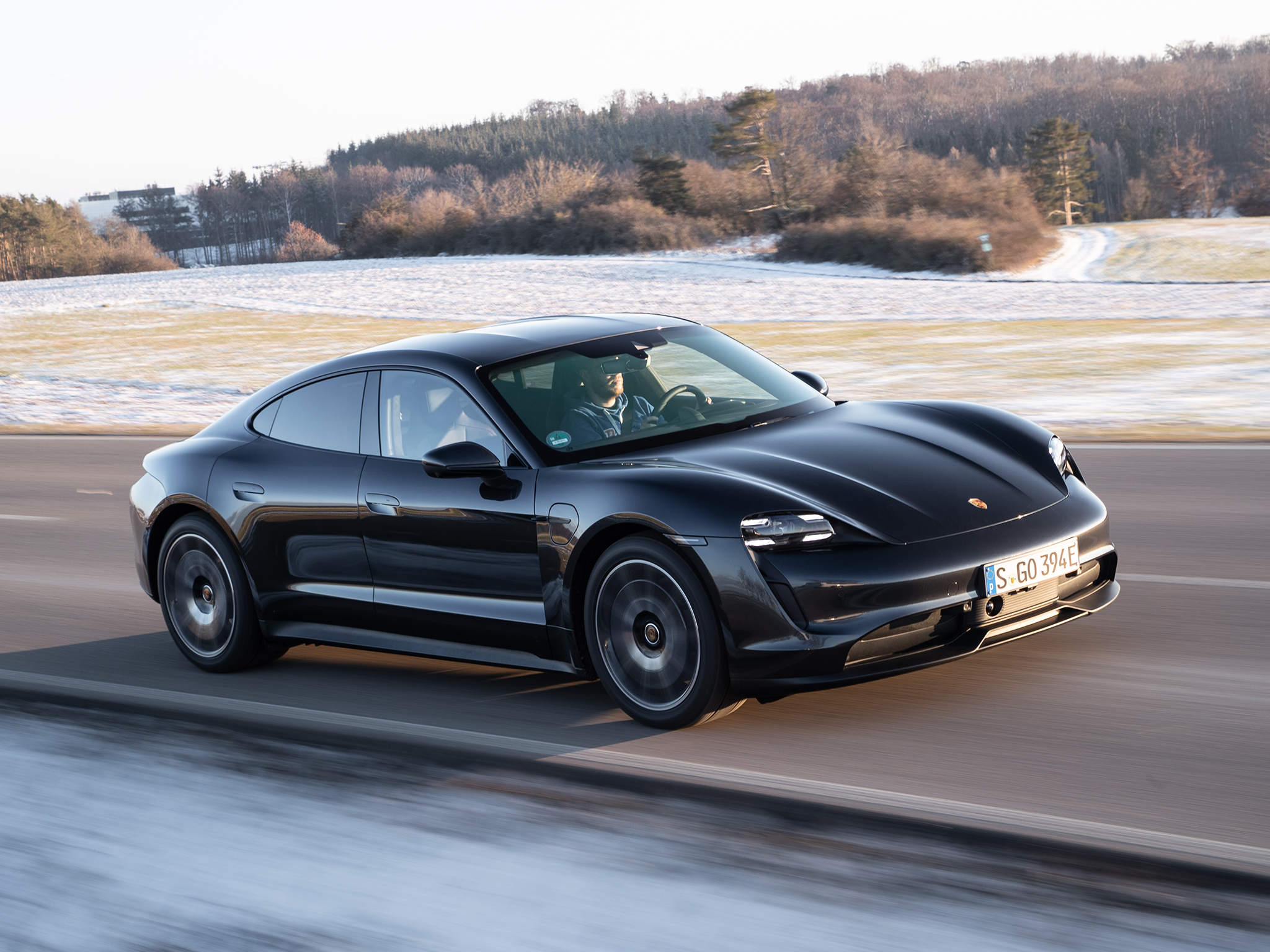
Independent rating: 9/10
- Maximum charge rate: 320 kW
- Battery size: 89 or 105 kWh
- Electrical architecture: 800 volts
- Charge time: 10 to 80 per cent in 18 minutes
- Maximum claimed range: 394 miles
Closely related to the Audi e-tron GT, the Porsche Taycan also received a facelift in 2024 that upped its maximum charge rate from 270 kW to 320 kW. This also resulted in a new 10-80 per cent charge time of 18 minutes, when using a 350 kW charger. The previous-generation Taycan manages the same charge in about 22 minutes, also when using a 350 kW charger.
The Porsche and Audi (as well as the Lotus and some EVs from Kia, Hyundai and Genesis) can charge so quickly because they have an 800-volt electrical architecture. Most other EVs use 400 volts, which is less expensive for manufacturers to produce, but limits their ability to charge as quickly.
4. Audi Q6 e-tron: £60,700, Audi.co.uk
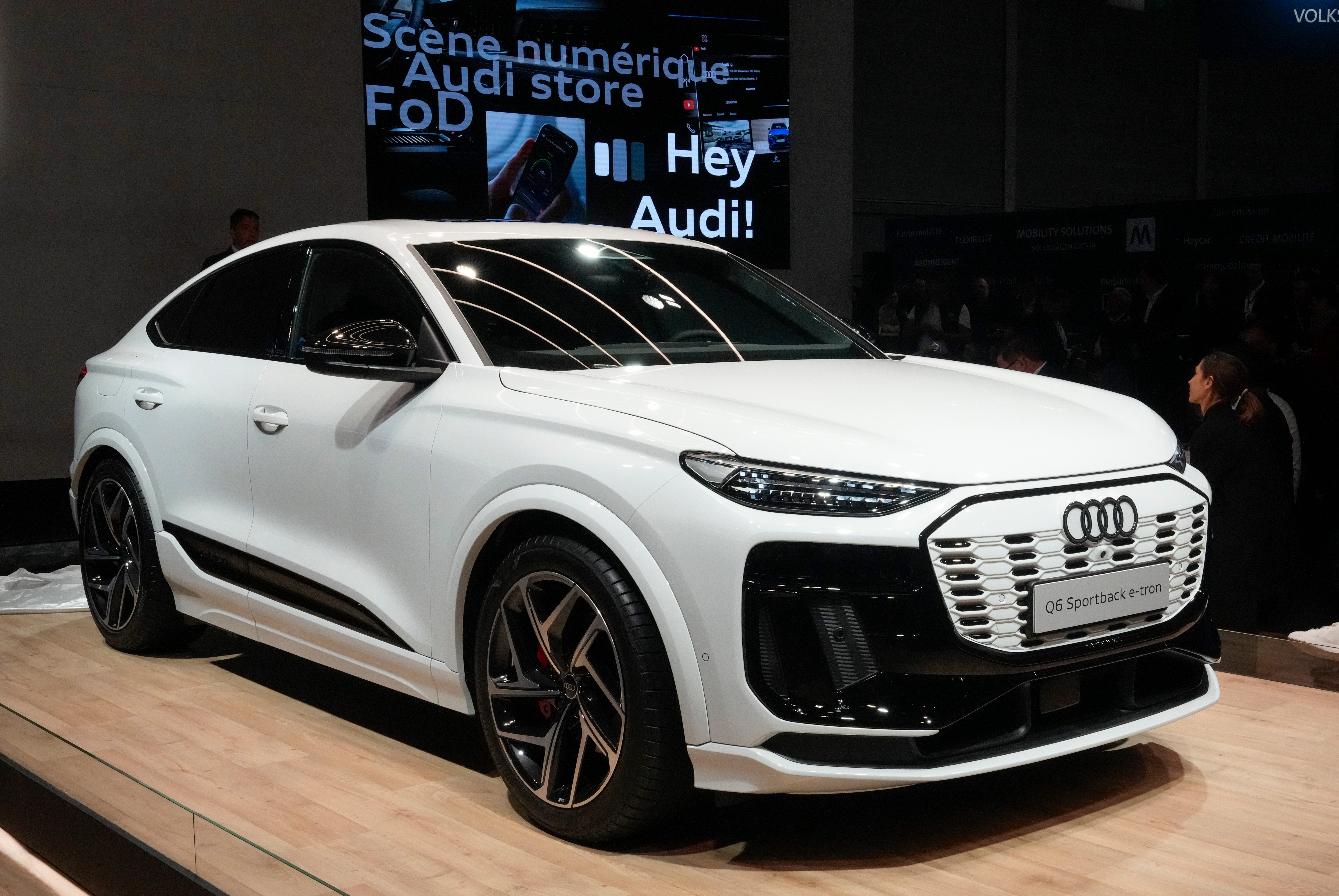
Independent rating: tbc
- Maximum charge rate: 270 kW
- Battery size: 82 or 100 kWh
- Electrical architecture: 800 volts
- Charge time: 10 to 80 per cent in 21 minutes
- Maximum claimed range: 392 miles
Another entry from the Volkswagen Group, the Audi Q6 e-tron is another 800-volt EV that can charge extremely quickly. Plug the electric SUV into a 350 kW charger and it’ll fill at up to 270 kW, resulting in a 10-80 per cent charge time of 21 minutes.
The Q6 e-tron also uses its 800-volt system to charge more quickly at less powerful 400-volt chargers too, such as those that operate at up to 150 kW. Plug it into such a charger, and it automatically splits its battery into two 400-volt packs, effectively charging the two halves in parallel at up to 135 kW. It’s a process that Audi calls bank charging.
Home charging on AC goes up to 11 kW for now, but Audi says this will be increased to 22 kW as an option at a later date, although most home chargers in the UK are limited to 7.4 kW.
5. Maserati GranCabrio Folgore: £185,610, Maserati.com

Independent rating: 8/10
- Maximum charge rate: 270 kW
- Battery size: 83 kWh
- Electrical architecture: 800 volts
- Charge time: 20 to 80 per cent in 18 minutes
- Maximum claimed range: 278 miles
Another member of the 800-volt, 270kW club, the Maserati GranTurismo Folgore can fill its battery to 80 per cent in as little as 18 minutes, when using a 350 kW charger. One of the very first convertible EVs to hit the market – and indeed the first soft-topped four-seater – the GranCabrio Folgore is a design winner inside and out, with decent range and advanced tech. It’s also seriously quick, just as you’d expect from a Maserati, with a 0-62 mph time of 2.8 seconds.
6. Porsche Macan Electric: £71,200, Porsche.com
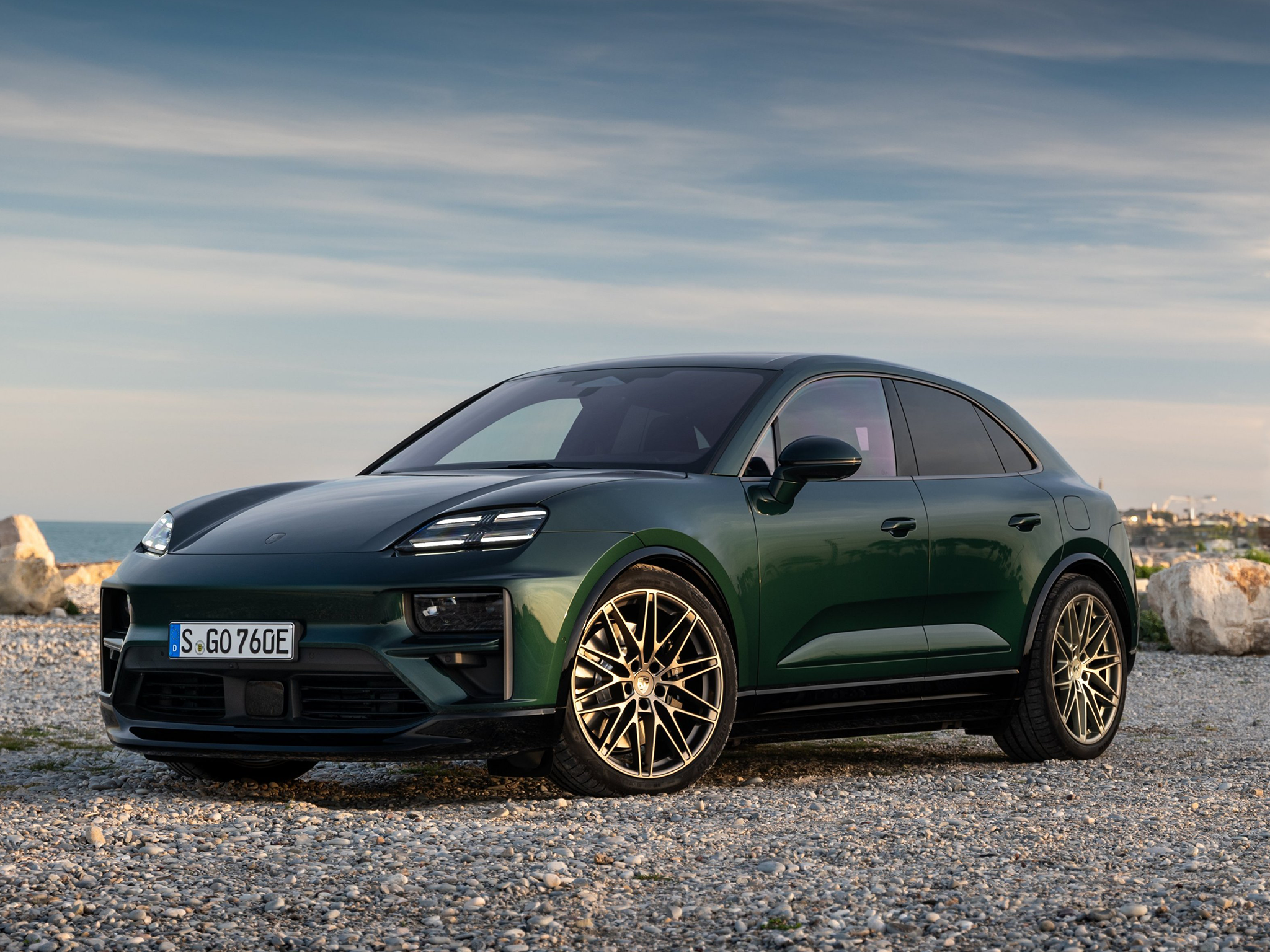
Independent rating: 8/10
- Maximum charge rate: 270 kW
- Battery size: 100 kWh
- Electrical architecture: 800 volts
- Charge time: 10 to 80 per cent in 20 minutes
- Maximum claimed range: 380 miles
Now only available as an EV, the new Porsche Macan is a mid-size SUV built on an 800-volt platform shared with the Taycan. While it doesn’t charge quite as quickly as Porsche’s flagship EV, the Macan still manages an impressive 270 kW when using an equally powerful charger. That translates into a 10-80 per cent charge taking just 20 minutes.
Read our full review of the Porsche Macan
7. Hyundai Ioniq 5: £39,900, Hyundai.com

Independent rating: 9/10
- Maximum charge rate: 260 kW
- Battery size: 63 or 84 kWh
- Electrical architecture: 800 volts
- Charge time: 10 to 80 per cent in 18 minutes
- Maximum claimed range: 354 miles
Platform sharing is commonplace among related EV brands, and nowhere is this more apparent than with the Kia Hyundai group. The Hyundai Ioniq 5, Kia EV6 and Genesis GV60 all share the same platform, with the former two receiving a similar facelift in 2024 that increased both their range and charge speed. For the Hyundai that means a maximum charge rate of 260 kW and a 10-80 per cent charge time of just 18 minutes. Add that to a claimed range of up to 354 miles, and you have an EV that can handle road trips with ease.
Read our full review of the Hyundai Ioniq 5
8. Kia EV6: £45,575, Kia.com
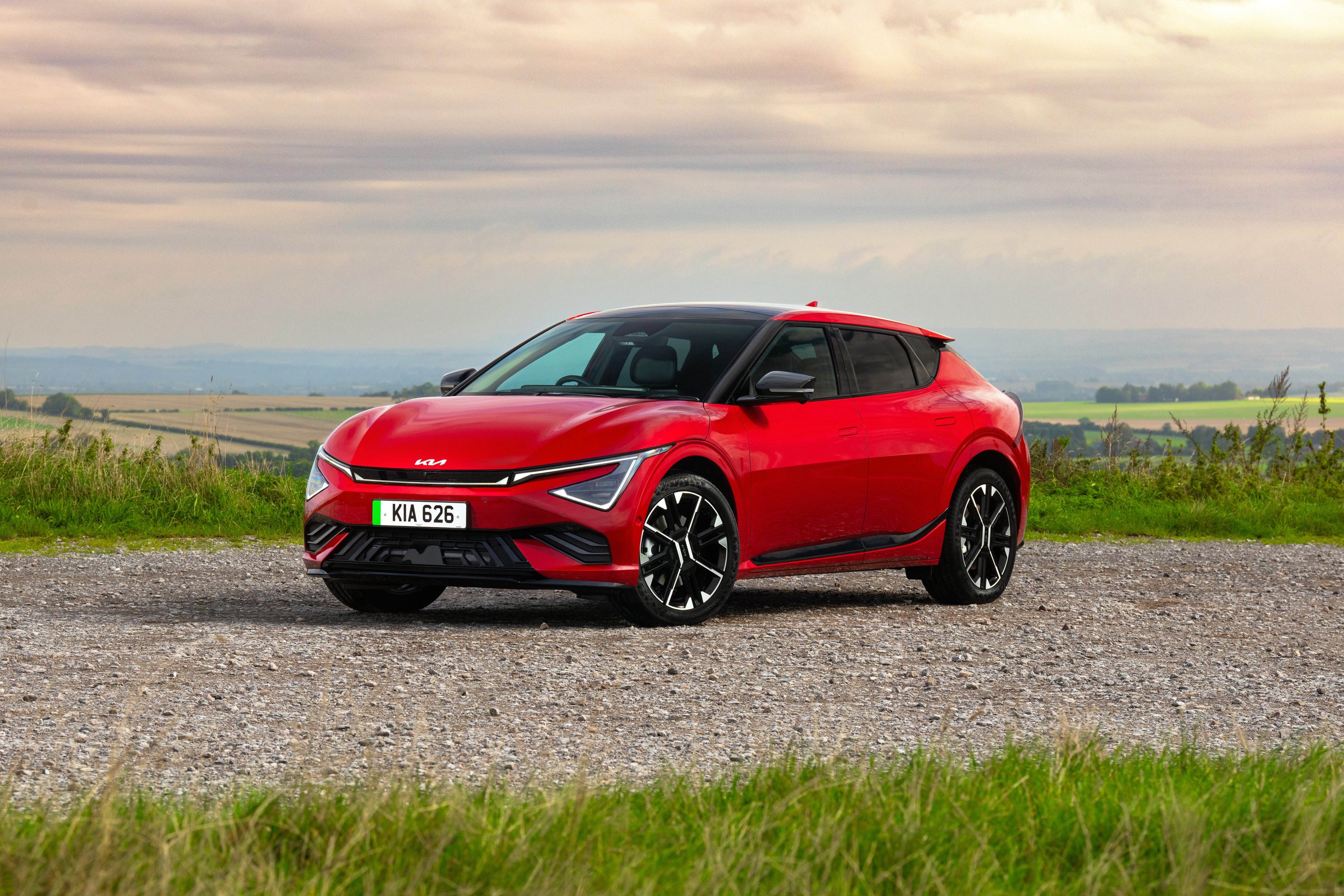
Independent rating: 9/10
- Maximum charge rate: 258 kW
- Battery size: 84 kWh
- Electrical architecture: 800 volts
- Charge time: 10 to 80 per cent in 18 minutes
- Maximum claimed range: 361 miles
Sharing its platform with the Hyundai Ioniq 5, above, the closely-related Kia EV6 benefits from the same 800-volt electrical architecture, the same charge rate and the same 10-80 per cent charge time. Also recently face-lifted, the EV6 is a very strong alternative to the Tesla Model 3. It’s also great to drive and comes with a lot of kit as standard.
Read our full review of the Kia EV6
9. Polestar 3: £69,900, Polestar.com
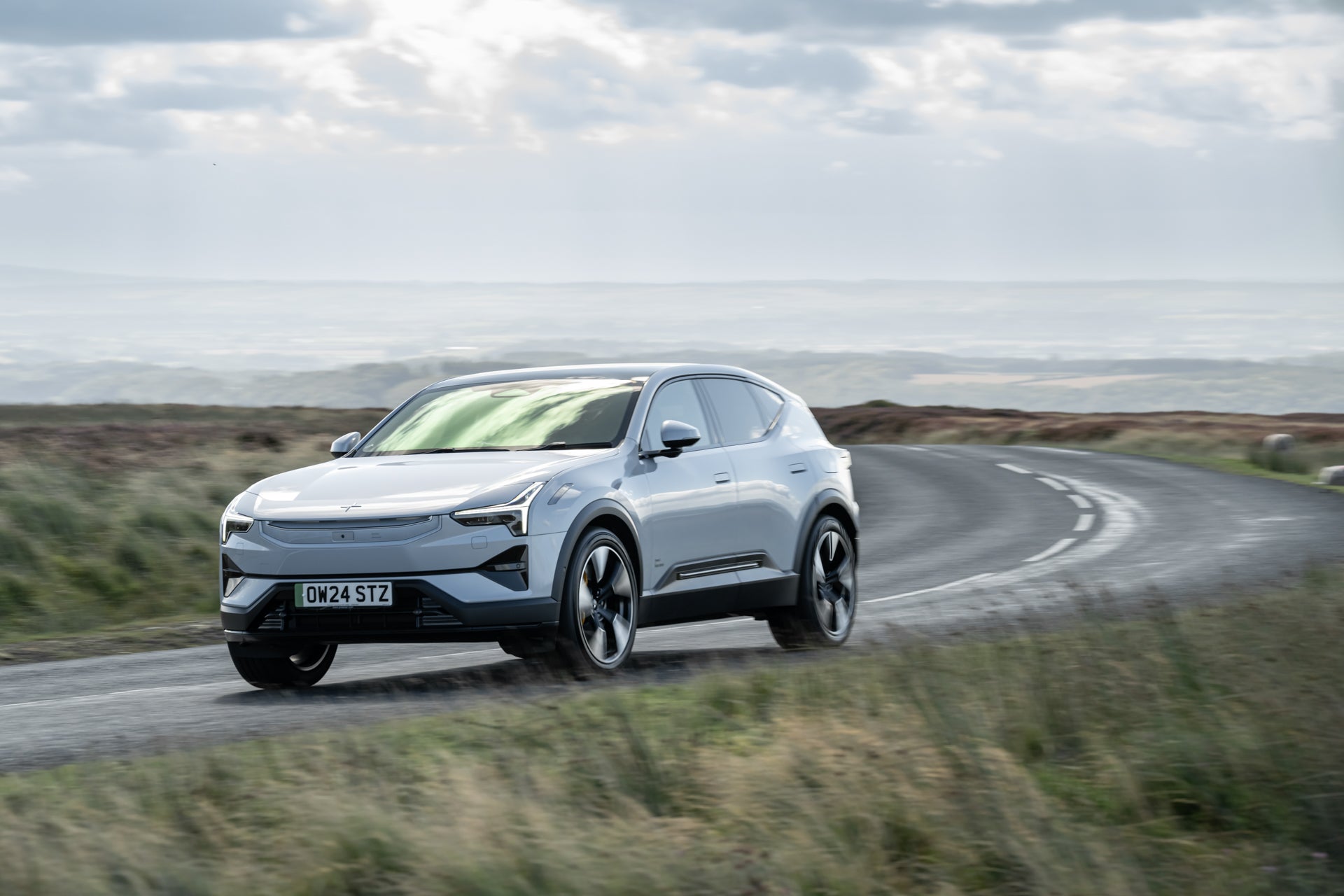
Independent rating: 8/10
- Maximum charge rate: 250 kW
- Battery size: 111 kWh
- Electrical architecture: 400 volts
- Charge time: 10 to 80 per cent in 30 minutes
- Maximum claimed range: 403 miles
Polestar’s first full-size SUV, and only its second electric car full-stop, the 3 doesn’t benefit from the 800-volt systems of other cars in this article, but still manages a charge rate of 250 kW. That’s enough to fill the huge, 111 kWh battery from 10 to 80 per cent in just 30 minutes – so even if it can’t quite match other cars in this list, it’ll still charges plenty quick enough for most drivers. The Polestar 3 also benefits from a sporty drive, an infotainment and navigation system powered by Google, and one of the best sound systems we have ever heard, complete with speakers by Bowers & Wilkins and Dolby Atmos compatibility.
Read our full review of the Polestar 3
10. Volvo EX90: £96,255, Volvocars.com
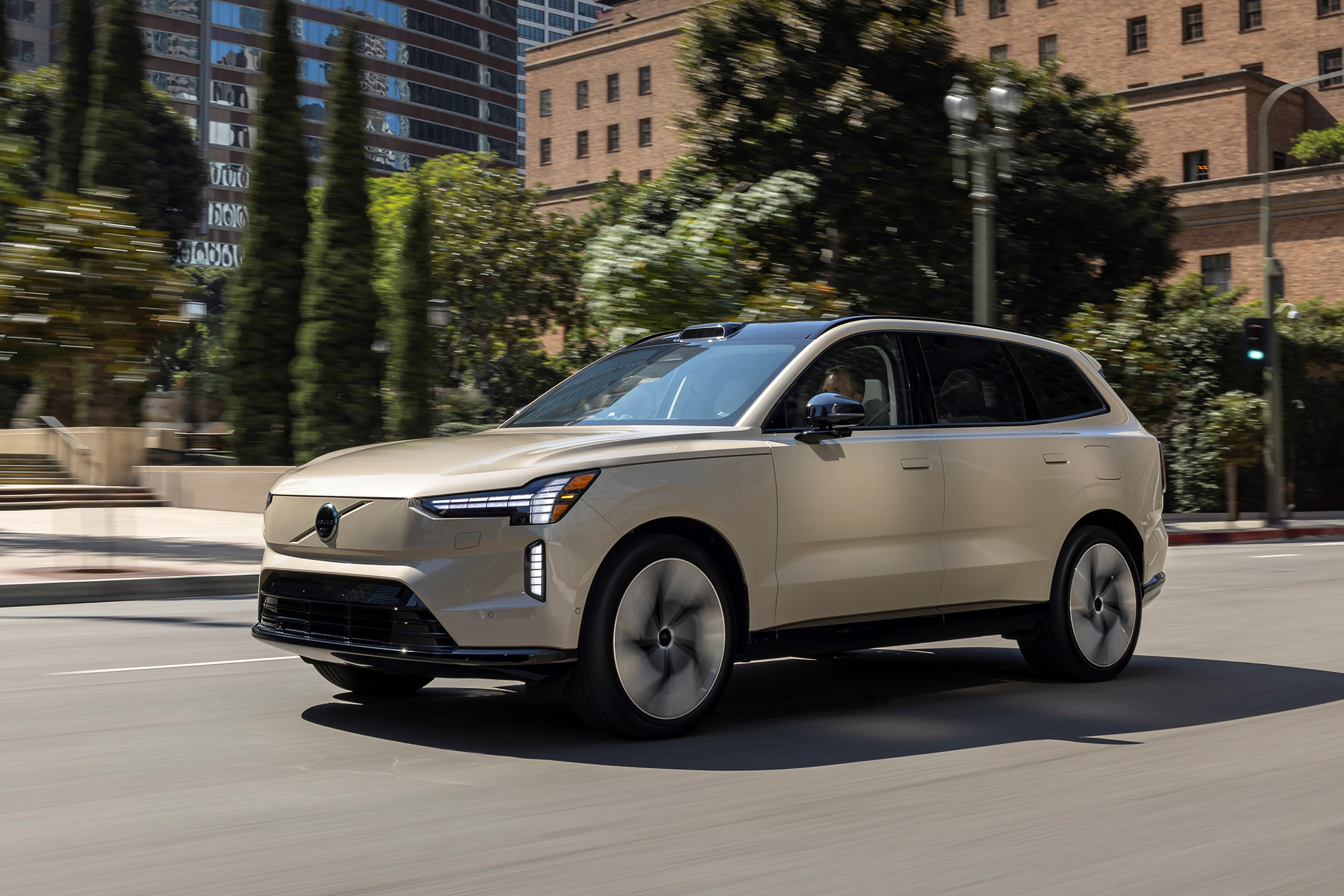
Independent rating: 6/10
- Maximum charge rate: 250 kW
- Battery size: 111 kWh
- Electrical architecture: 400 volts
- Charge time: 10 to 80 per cent in 30 minutes
- Maximum claimed range: 374 miles
Another example of an EV sharing its platform with another, the Volvo EX90 has the same battery size and charge rate as the Polestar 3. Essentially an electric version of the iconic XC90, the EX90 is Volvo’s new flagship SUV, with seven seats and masses of Scandi cool. We were impressed by the spacious cabin – which has over 300 litres of storage space, even with all seven seats occupied – and impressive comfort and quality. It also benefits from a fantastic Bowers & Wilkins sound system with a mode that replicates the acoustics of the famous Abbey Road Studio.
Read our full review of the Volvo EX90
Verdict
Despite all the cutting-edge technology on display, EV charging is an inexact science. Charge speed can be affected by temperature, as well as how full the battery already is, how many other cars are using the same charge station, the capability the charger, and the maximum charge speed of the car. It is also important to understand that an empty battery fills much more quickly than a near-full one – that’s why charge times are usually framed using a fill from 10 to 80 per-cent. Also, in the interests of prolonging battery health, filling from 80 to 100 per cent should be done on a slower AC charger at home.
Ultimately, a faster-charging EV is more convenient than one which charges slowly. However, if you want an EV with a small battery, how quickly it charges on a per-kilowatt basis will matter less. While 320 kW or 350 kW charging speeds make for great headlines, we imagine most EV drivers will be happy if their car consistently fills at 100 kW or more. And remember – these maximum speeds are only achieved for a short amount of time during the charging process; a near-empty battery may hit top-speed in a matter of seconds, but that speed will fall as the battery fills up.
FAQs
What is the maximum charging speed available in the UK?
The fastest public chargers available in the UK operate at up to 350 kW, which is equal to the capabilities of the fastest-charger EV on sale here, the Lotus Eletre. Such chargers are operated by providers like Gridserve and Ionity.
How to charge your EV as quickly as possible
Electric cars charge more quickly when their battery is low on charge and when the battery is warm. Many EVs will warm their battery as they approach a charge station (but only if you are using the car’s own navigation system and have set the charger as a destination). Using a more powerful charger will fill the battery more quickly, but only at whatever limit the car can handle; for example, a car that can charge at 150 kW will not charge any quicker if you use a 350 kW charger.
What factors influence charging time?
Battery state-of-charge and temperature are key factors when it comes to charge speed. For example, on a recent cold day we saw a charge speed of just 42 kW when filling an EV capable of over 200 kW, using a 350 kW charger. The battery had not been pre-conditioned (warmed up) on the way.
What’s the difference between EVs using 400 volts and 800 volts?
You might already be familiar with how almost all cars use a 12-volt electrical system, usually powered by a traditional lead-acid battery. EVs also use these batteries to power auxiliary functions, but also have a high-voltage system for powering the much larger battery used to drive the motor or motors.
These high-voltage systems run at either 400 volts or 800 volts, with the former being more common but the latter offering greater charge speeds. Although more expensive to produce, 800-volt systems offer greater efficiency as they tend to use lighter components and require half the amps of a 400-volt system. The greater efficiency comes from less heat loss, since the system is operating at a lower current – and what this ultimately means is, 800-volt EVs can charge their batteries at a higher rate, measured in kilowatts.
Whereas 400-volt EVs tend to charge at no greater than 250 kW (when using an equally powerful charger), EVs operating at 800 volts can charge at 320 kW or even 350 kW – and that matches the most powerful public chargers currently available in the UK. There is the potential for 800-volt EVs to charge even quicker, with the upcoming Polestar 5 reaching 370 kW in testing and Chinese EV company Zeekr achieving over 540 kW, also during the testing of a prototype EV battery. Such a rate could lead to charging an EV from 10 to 80 per cent in just 10 minutes.






Join our commenting forum
Join thought-provoking conversations, follow other Independent readers and see their replies
Comments